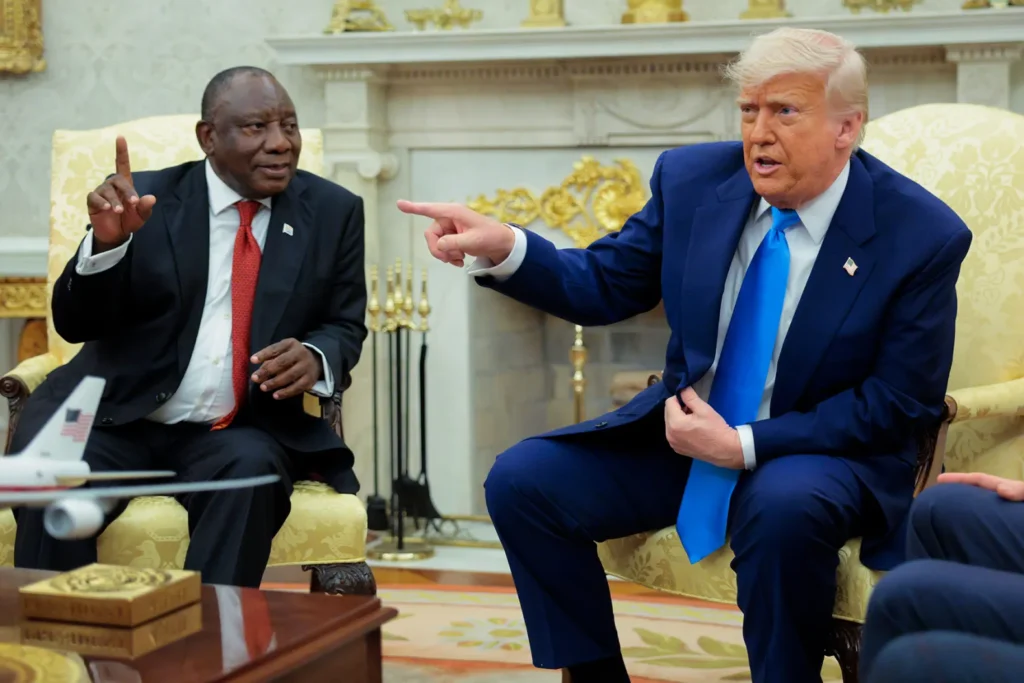South African President Cyril Ramaphosa is facing significant diplomatic headwinds as his efforts to mend relations with the United States under Donald Trump’s administration continue to falter. Once a cornerstone of South Africa’s foreign policy, its relationship with Washington has sharply deteriorated, with the U.S. treating South Africa with increasing hostility.
The Democratic Alliance (DA), South Africa’s second-largest political party, recently revealed that the U.S. denied a diplomatic visa to Mcebisi Jonas Ramaphosa’s special envoy effectively blacklisting him. The U.S. State Department refused to comment, citing visa confidentiality. This snub follows a string of tensions, including Trump’s suspension of aid, allegations of anti-white persecution by the South African government, and criticism of its support for a genocide case against Israel and warm ties with Iran.
Jonas’s appointment was intended to repair strained ties, but his past criticisms of Trump and his association with MTN, which owns a stake in IranCell, have made him an unwelcome figure in Washington. His absence from Ramaphosa’s recent delegation to the White House adds weight to the DA’s claims.
The breakdown in communication has seen the U.S. boycott South African-led G20 meetings. Key U.S. officials, including Treasury Secretary Scott Bessent and Secretary of State Marco Rubio, have repeatedly skipped these forums, citing concerns over South Africa’s policies.
Analysts argue that Ramaphosa’s progressive stance on global issues, including climate change, equity, and anti-racism, conflicts with Trump’s conservative, nationalist agenda. Trump’s administration views South Africa’s black empowerment policies as discriminatory, deepening the rift.
Economic consequences loom large. Trump has threatened to impose 30% tariffs on South African goods from August 1, a move that South Africa’s central bank warns could cost 100,000 jobs. The agricultural sector, ironically home to the very Afrikaner farmers Trump claims to support, would be hardest hit.
With diplomatic channels severed and economic pressure mounting, experts say South Africa must now pivot toward strengthening ties with other global partners while weathering an unpredictable Trump era.

